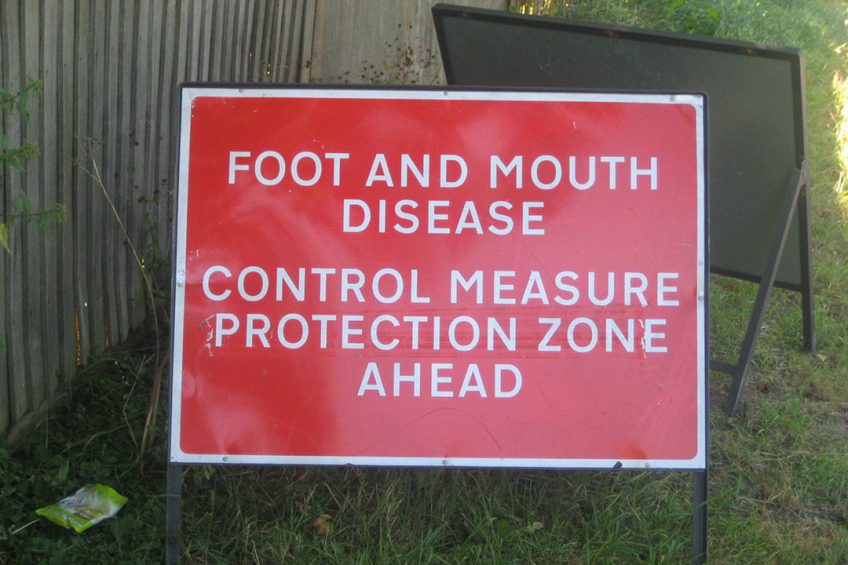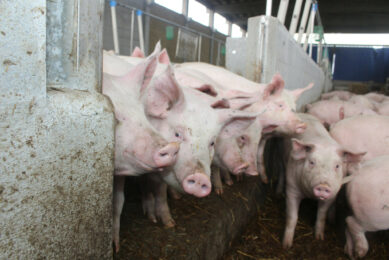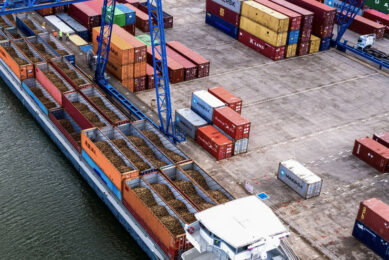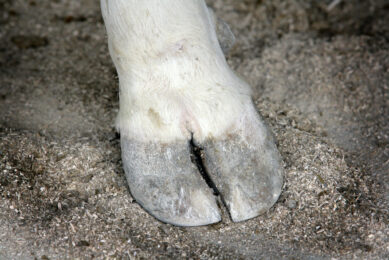Pig movement bans may be economically damaging

Movement bans for pigs and other types of livestock, as ways to control disease outbreaks like Foot-and-Mouth Disease (FMD), may prove to be economically damaging.
That conclusion was reached by researchers from the University of Warwick, University of Bristol and Imperial College London, UK. They focused on Foot-and-Mouth Disease (FMD), bovine TB (bTB) and bluetongue virus (BTV). They published their results in Nature Sustainability.
The United Kingdom suffered from an FMD outbreak in 2001, in which the movement of e.g. pigs, cattle and sheep was generally banned in an effort to prevent the spread of infection. Similarly in 2007, an outbreak of bluetongue virus lead to large-scale movement bans across eastern England.
Profound impact on farmers
Given that the livestock industry relies on the movement of animals (between farms or farm to slaughter) to make a profit, such movement bans can have a profound and wide ranging impact on farmers. Moreover, in 2001 the general message that ‘the countryside is closed’ resulted in enormous losses to the tourist industry.
The research found that the current UK government policy of national movement bans when e.g. an outbreak FMD is detected may cause unnecessary economic harm, when a more localised movement ban could be as successful in halting the spread of the disease and would limit the subsequent negative economic impact.
Examining the consequences of control options
Led by Dr Mike Tildesley, University of Warwick, the researchers used predictive models to examine the consequences of different control options. The team argued that whilst livestock movements bring the risk of long-range spread of infection, this risk is strongest from farms in close proximity to where infections has been detected; therefore a limited movement ban (only preventing movements from farms near to known cases) brings most of the benefits but less of the economic costs.

Read more on pig production in the UK
By not automatically implemented national bans during FMD (or bluetongue) outbreaks, geographical regions unaffected by the outbreak would not face the same economic impact caused by the restrictions put in place by a national ban.
Accordingly, whilst a national ban on livestock movement was an appropriate initial response to the FMD outbreak of 2001 given its widely dispersed nature, the policy caused potentially avoidable economic harm in the outbreak of 2007.
“Optimal movement bans are shorter than existing policy”
In a news release on the website of the University of Warwick, Dr Tildesley said, “Our research says that movement controls need to be carefully matched to both the epidemiological and economic consequences of the disease, and optimal movement bans are often far shorter than existing policy.
“For example, our work suggests that movement bans of between 15-60km are optimal for FMD (with larger radii preferable if tourism losses can be ignored), while for BTV the optimal policy is to allow all movements.”

Read more about pig health in the Pig Progress Health Tool
He continued to say, “Adopting these optimal movement bans could lead to vast savings compared to more stringent policies. We fully recognise the need for the government to rapidly contain novel outbreaks in the face of uncertainty, but our work suggests that optimal movement bans should be enacted as soon as possible.”
The researchers also looked at bovine tuberculosis (bTB), concluding that the economic cost of any movement ban is more than the epidemiological benefits; however if tests are sufficiently cheap a localised testing programme around infected farms could be economically viable in the long-term.
The research in Nature Sustainability was authored by M.J. Tildesley, S. Brand, N.V. Bradbury & M.J. Keeling, University of Warwick, Coventry, UK; E. Brooks Pollock, University of Bristol, UK; and M. Werkman, Imperial College London, London, UK.











